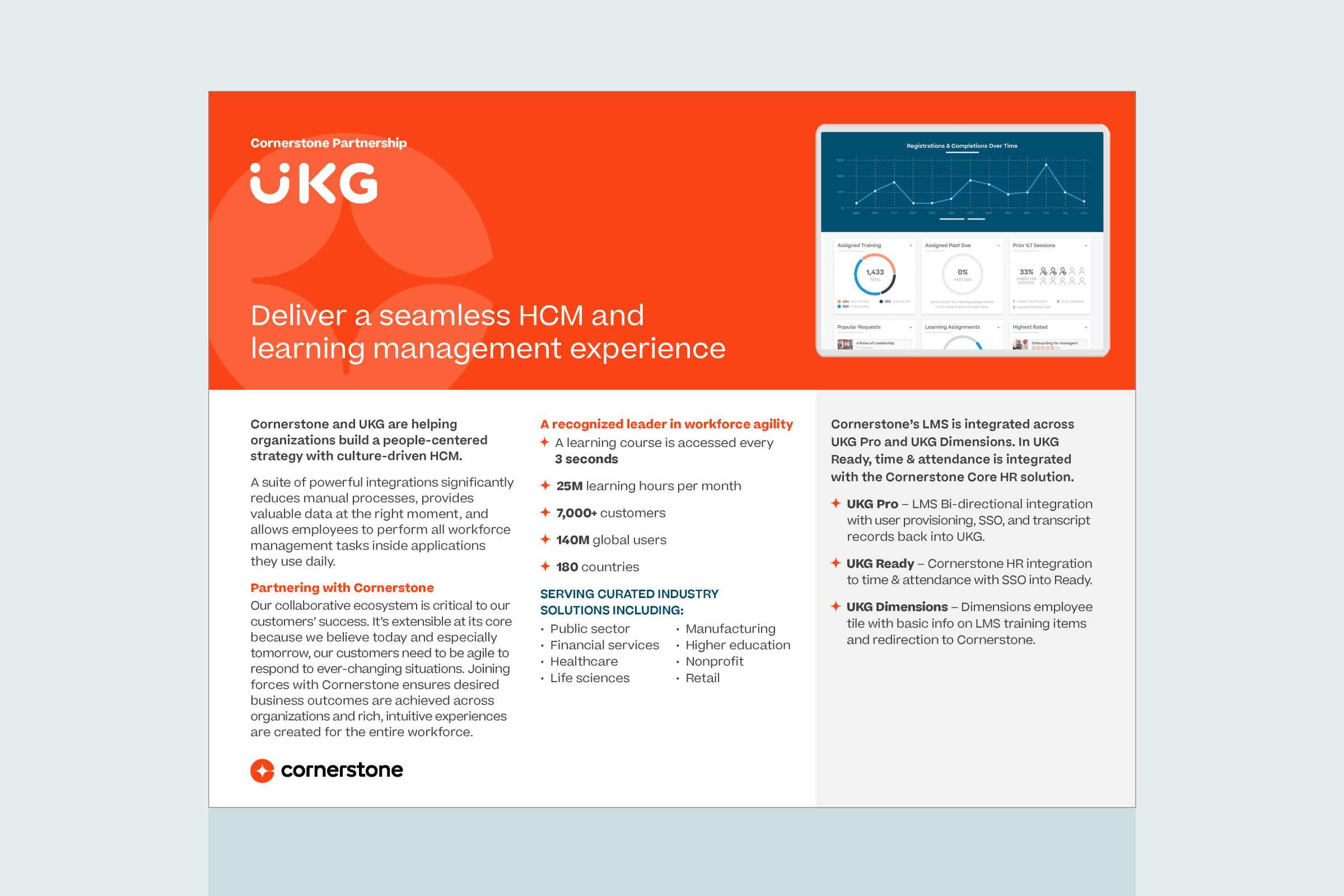Editor's Note: Over the next few weeks, we'll be rolling out three lessons for developing up-and-coming employees as leaders and managers. Learn more about the effort in our playbook introduction, and check ReWork again soon for lesson two!
According to a study by the Harvard Business Review, the average age a person becomes a supervisor is 30. That same study revealed the average age of people entering leadership training programs is 42. That means employees are generally leading for over a decade before they receive true leadership training. They're expected to learn on the job without formal guidance for far too long.
Leadership training shouldn't start only after employees start managing other people, either. L&D leaders can help managers gain the skills they need even when they're still individual contributors, so that once they get into a management or leadership role, they'll be ready to perform at their best—which translates to real dollars for a business.
To properly prepare future leaders, companies need a leadership and management training program that offers these employees skills they can hone before they're in managerial roles. Employees at this stage may not need to learn about high-level topics like strategic goal-setting, for example, but they can benefit from a few topics on both sides of the leadership and management continuum.
For example, it's never too early to offer training on leading a project. Even if it's a small, relatively low-stakes situation, L&D leaders can guide these employees through the ins and outs of planning and managing a project, and navigating the changes that inevitably come up along the way. At the same time, you can help these employees start to learn the networking and relationship skills that successful leaders rely on. That means training on topics like establishing credibility, building influence and taking ownership—after all, its these skills that'll enable rising leaders to inspire and motivate their teams. This is critical because without the support and trust of their surrounding employees, leaders are unlikely to see buy-in for their initiatives.
One type of manager in particular that's often overlooked for leadership development is the front-line manager. Front-line managers are those underserved supervisors who are expected to learn on their own for 10+ years. Companies have an opportunity to train these managers so they can guide their team through any situation, and effectively track their team's progress toward goals.
Instead of leaving it to managers to learn on their own, offer formal training on topics like delegating, facilitating meetings, managing performance and using KPIs. If you leave managers to fend for themselves and pursue learning independently, however, you leave their development up to chance and lose control over what skills they learn.
But don't stop with the tactical topics. These are future strategic leaders too, and they need to further master their relationship and visionary skills in order to lead the organization to new places. Offering them training on topics like coaching strategies and team motivation will help prepare them for the future when they reach their next role.
This third level of leadership, when employees have reached senior manager or even director-level roles, is one where they might get typical leadership training. Strategic leaders must stitch together high-level strategies with the work that's happening on the ground and communicate issues effectively to their people. That means offering training in topics like leading innovation, setting goals, building smart teams, resolving conflicts, and managing organizational change.
Though it seems like some of these skills can be learned intuitively or through on-the-job practice, formal training is important. Organizational psychologists and team-building experts often have specific tactics and proven strategies that they've spent years developing—pulling content from trusted sources such as these and offering it to your leaders in training via a Learning Management System or another tool can make the content easy to access and digest.
According to Brandon Hall Group's State of Leadership Development report in 2015, 84% of organizations anticipated a shortfall of leaders in the next five years. And yet, only 5% of organizations reported having fully implemented development programs at all levels. The way to bridge that leadership gap is to get all employees involved in leadership and management training, no matter what role they're currently in. By offering a progression of training throughout their careers, they'll stay engaged with valuable experiences they might not be able to get elsewhere. This will set any organization up for its future.
To see how you can use Cornerstone's Development content as part of a comprehensive leadership and management program, click here to get in touch.
Stay tuned for the next lesson in our L&D Playbook, coming shortly!
Photo: Creative Commons


